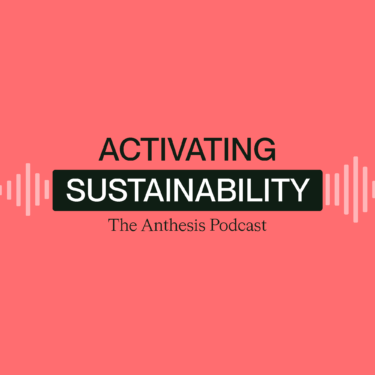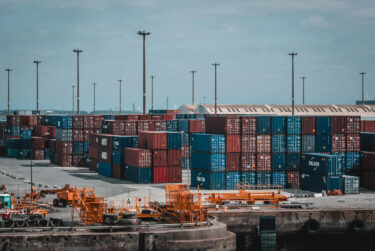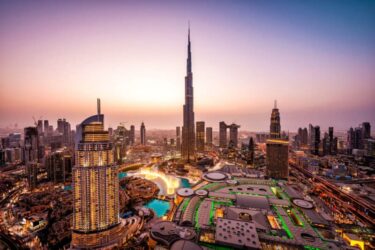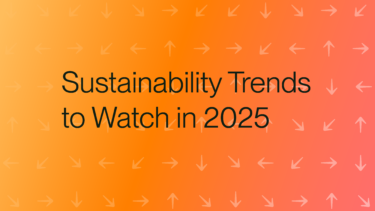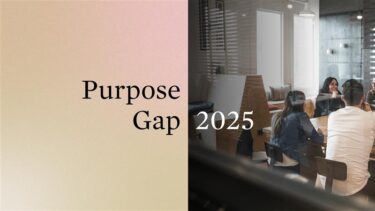
Speakers
Chris Peterson, Director
Thâmisa Gonzalez, Head of Business and Human Rights
Related Topics
Mentioned Resources
Share this episode
In this episode of our Activating Sustainability series, our host Chris Peterson is joined by Thâmisa Gonzalez, Head of Business and Human Rights for Brazil and Latin America at Anthesis, who recently attended the 9th UN Regional Forum on Business and Human Rights in São Paulo, Brazil. Together, Chris and Thâmisa discuss the state of human rights in Latin America, the evolving role of businesses, and the importance of effective due diligence and remedy processes.
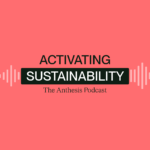
Read the transcript
Chris Peterson: Hello and welcome to Activating Sustainability, the Anthesis Podcast. I’m your host, Chris Peterson. Earlier in April, the UN hosted the 9th Regional Forum on Business and Human Rights for Latin America and the Caribbean. On today’s episode, I’m speaking with Thâmisa Gonzalez, head of Business and Human Rights for Brazil and Latin America, who is based in Brazil and attended the meetings.
Thâmisa, welcome to the podcast. Thanks so much for joining.
Thâmisa Gonzalez: Thank you.
Chris Peterson: So maybe to start us off, could you tell us a little bit about the event and its purpose and some other pieces of what happened?
Thâmisa Gonzalez: Yeah, of course. So basically the UN Regional Forum on Business and Human Rights for Latin America and the Caribbean is a part of a process led by the UN Working Group on Business and Human Rights. It basically brings together governments, companies, civil society, rights holders, and also affected communities to discuss how businesses, activities impact human rights and also how we can change that. So this year’s event was the 9th edition and it took place in São Paulo, Brazil, and it provides us space to evaluate how far we’ve come and how much still needs to change. I think it’s important to mention that it has a one of its basis, the UN guiding principles on Business and Human Rights, which we call the UN GPs for short. And the UN GPs, they are a global standard, although voluntary, endorsed by the UN in 2011 that established that states must protect human rights, companies must respect human rights, and also that there must be access to remedy when harm occurs. So when either, for example, we’re going to be focusing here on how companies might impact human rights, so when it happens, what should be done to give those who were affected by the company’s activities should go back to the status quo.
Chris Peterson: Great. And maybe to help us kind of put some of those discussions in context. Where is the kind of current state of human rights and the impact of business activities, particularly in Latin America?
Thâmisa Gonzalez: Yeah, of course. When, companies, they have their activities or even their suppliers have their activities, those activities might impact the community in the surrounding areas or also the workers who are working at the company and how those negative impacts might affect their human rights.
So that’s basically what the UN GPs they set: where the company should act where they have to respect the human rights and what they should do to mitigate or prevent these risks or impacts. One of the reasons why the UN GPs were developed is to establish those steps, of how companies should act whenever they have a risk, and also to act before having those impacts.
So they need to analyze the risks and impacts that the, their activities might cause. And then they have to understand better the result of this assessment and implement this in their process and then report their findings. So it’s an ongoing process and it’s really important to, as I said, mitigate and prevent any human rights risks and/or impacts.
Chris Peterson: And maybe just to unpack that a little, are there some common areas that you see human rights issues are showing up from business activities or kind of high risk business activities that people should be paying particular attention to, or sectors or commodity sources, et cetera.
Thâmisa Gonzalez: Yeah, I think we can say the high-impact sectors, they tend to have more human rights violations just because it’s a high-impact sector and they have activities that have a higher tendency of negatively impacting people’s rights. So, when we are talking about high-impact sectors, we can cite mining, energy, pulp and paper, agribusiness. So there is a number of sectors that might delve into the situation.
Chris Peterson: Right. And what are some of the activities that tend to drive human rights issues within those, or tend to show up most as we think about those impacts? Is it in terms of the hiring processes, the kind of actual mining efforts, et cetera.
Thâmisa Gonzalez: It depends a lot. Also when we are doing human rights risk mapping or also an human rights impact assessment, we have to take into consideration the sector of the company where the activities are being carried out, and also the context of the country or the region where the activities are being carried out. Why? Because each region has their own context and that’s why it is also important to have a regional forum – I’m just giving you an example, why is it important to have a regional forum here in Latin America? Because we have a really specific context.
So, I’ll give you an example in Brazil, Brazil by itself, it’s a huge country. If we take an activity there that is being carried out in the south of Brazil, the risks and impacts might be different from the same activity in the north part of the country. Even though we are talking about the same sector, the same company, but the risks and impacts might differ. In a nutshell, and overall, we should be looking at workers’ rights especially when they are not hired directly by the company because there is a tendency of them becoming more vulnerable and more susceptible to human rights impacts. We should be thinking about traditional communities and the community around the company’s operations as well. But also human rights defenders, for example, not necessarily from the communities surrounding the area, but from traditional communities health and safety of workers. We could be talking about, land rights/land grabbing, which is a huge issue in Latin America. If the companies are respecting people’s lands, the communities’ rights to health.
So if they are polluting river or polluting the atmosphere, how it might impact the people living around the operation of the company. It depends a lot on the sector, but also we can find a lot of risks and impacts that are similar but different depending on the sector. So if we’re coming from the right perspective, the rights violations might be the same, but the fact that it’s generating the violation might differ.
Chris Peterson: Right, and appreciate the complexity of that, and maybe you had mentioned in that the idea of doing human rights risk mapping or impact assessments. Just curious if you could describe that a little bit in terms of kind of what does that look like and how do we help organizations to think through all of that nuance and differentiation.
Thâmisa Gonzalez: Yes, of course. So normally the human rights risk mapping, they’re more broad. It can be in a country or in a state, but it’s broader than the human rights impact assessment.
When we are talking about the human rights impact assessment, normally we delve into the operation and we see what impacts are happening given that operation. Just as background information, when we are talking about risk, we are talking about possible and potential impacts. And when we are talking about impact, is the violations that have already happened. Our work, it’s based on the aim of mitigating and preventing impacts, but sometimes when we go to the operation, some of those impacts have already happened. So we have to know how to deal with that. But when we are doing a human rights risk mapping, we trying to understand the context of the company, how it operates, and what they can do to prevent the risks that we’re identifying.
So it is a broader and more high level kind of work than the human rights impact assessment, but they’re both really helpful for the company to understand what they’re dealing and to think ahead and plan the actions that they’re going to implement, prevent and mitigate those risks and impacts happening again in the future or if from happening at all.
Chris Peterson: Is that typically a kind of end buyer brand, et cetera, that is paying to have that done for their supply chain? Is that like a local supplier or organization that’s doing that? Like where’s the driver for that coming from?
Thâmisa Gonzalez: Yeah, I think it depends a lot on the maturity of the company and because we know that it depends also on the budget, right? It depends how much the company has developed before reaching out to us and also what it is looking for, because depending on the situation, the demand comes from investors, for example.
But also some companies, they want to start so they don’t know where to start and they reach out to us so we can help them figure that out. It depends a lot. We do have a lot of different products to offer the clients when they want to understand where they are at when it comes to human rights and how they can improve their processes.
But I think the due diligence process is the most common thing. So basically, we help clients identifying risks and impacts and then with this results, we try to monitor them and then implement them in the company’s process, so they can better understand what they are doing and how they can improve. So basically monitor all the findings and so they can report back on both the findings, how they’re dealing with the risks and impacts that were found, and also to give some answers to different stakeholders especially rights holders. Because we’re also talking about an effect meaningful engagement with rights holders. So during this process, normally we engage with rights holders, and it’s just fair that the company reads back to them to explain what has been done and what they’re currently doing.
So we always try to be really straightforward with the clients, that it’s a process that they need to implement when developing and applying the due diligence process when it comes to human rights.
Chris Peterson: Fascinating and imagine it’s one of those things that you definitely want to be ahead of those findings, right? And value of being proactive as opposed to being surprised, by them. And maybe just on that topic of surprise, like I know when you and I connected a little bit ahead of this, you had mentioned the current state of human rights in Latin America.
I’m wondering if you could speak a little bit about that. Like I was surprised to hear how that is still yeah, maybe so challenging.
Thâmisa Gonzalez: Yeah, of course. It is important to contextualize a little bit the reality here in Latin America. So Latin America is a region of great beauty, rich culture and also a lot of natural resources. Because of that, it plays a crucial role in global supply chain. We export soy, coffee, minerals, energy, timber, and other commodities and products and goods. It’s important to highlight that we have a really diverse cultural background and also Brazil, as I was saying before plays a key role here as one of the largest exporters of agricultural, commodities, minerals, and energy. And what happens in Brazil has a ripple effect around the world.
And however, I’m talking about Brazil here, but I’m also talking about other countries in Latin America. So global supply chains, they often depend on resources from Latin America, but unfortunately those come or they normally come at a human cost when local communities are displaced or silence, for example, or when environmental protections, they are not enforced or sufficiently enforced.
Latin America is the most dangerous region in the world for human rights defenders, particularly for land defenders, indigenous people, and environmental activists. According to global witnesses countries like Columbia, Mexico, Brazil, and also Honduras, are at the top of the list of killings of defenders year after year.
Which is why I think it’s really important for the UN to have a regional forum on business human rights because it enables those who are from Latin America or it can either be companies or stakeholders or even rights holders, civil societies, et cetera, to discuss and remind us that business and human rights are not two separate conversations because they’re deeply connected. Especially in a region where we have such a huge and really important background when it comes to global supply chains.
Chris Peterson: Yeah it’s fascinating. I think too often, at least personally, I take some of those human rights progress as for granted, and it’s a kind of sobering reminder of that experience globally. I know you had mentioned that there are, were a number of key issues and topic discussions that came out of the kind of ninth forum.
I’m curious if you’d like to share some insights on those, as ones that really stood out for you.
Thâmisa Gonzalez: Yeah, so there are a couple of different key aspects that I think are important mentioning here. The first one is Free Prior Informed Consent (FPIC). FPIC for those who do not know is the right recognized by the LO convention number 169, which is binding countries like Brazil, Mexico, and Peru and I’m, always going to try to mention here the Latin American countries since we are talking about the Regional Forum.
But the free prior informed consent is also reinforced in the UN declaration on the rights of indigenous people. So basically, these instruments, they establish that indigenous and tribal people, they have the right to decide what happens on their lands and territories freely before any project begins, or with all the necessary information.
And which is really important here, without coercion. However is too often treated as a formality or a checkbox. And one of the main complaints raised during the forum was that companies they show up with the decisions already made and consultation becomes an information session and not a bilateral dialogue, for example. And again, at the forum, many indigenous leaders and also different right holders they reminded us that FPIC is not just something to do and show. It’s not about giving information and it’s not a checkbox.
It’s about respecting their these people’s autonomy and self-determination. And it should be also about the right to say no. Oftentimes companies, they consult communities late in the process or only after decisions have already been made, and that’s not real dialogue. So one of them, their main complaints was that real FPIC means listening early, often, and also with respect for the power imbalance that happens when there’s a multimillionaire company and a lot of vulnerable communities on the other hand. It’s one of the quotes that really had an impact on me – It is from an indigenous leader, from the Crena community who pointed out that it is important not to confuse the FPIC process with the provision of information to the territory and it’s community.
And it’s really important to consider that traditional people are people with rights who need to be considered in the genesis of the decision-making process of companies as much as possible.
Chris Peterson: Yeah, such an important thing to be digging in on. You know, I think you’d also mentioned about the idea of remediation. So as we think about the backend of the process.
Thâmisa Gonzalez: Yeah, of course. Remediation comes when the harm has already been done. For example, when people are displaced, or the river that they depend on for their livelihood is poisoned, or if their lives are threatened, what can the companies do? That’s where the concept of remediation comes in. I’m going to give you a little bit of a background on what the UN GPs says about remediation, which is businesses must enable access to effective remedy, whether through operational level, grievance mechanisms, judicial systems, or alternative channels like mediations, for example.
So during the forum people showed us that remedy is still the weakest link in the business and human rights agenda. Communities, they share their stories of waiting for years, sometimes even decades, for justice. Even some cases that were highlighted there they went to court. They won in court, and the implementation of reparation has not been done yet or the way that it has been done it was incomplete or denied together. So in my personal opinion, the key takeaways when it comes to remediation is that remedy should be proactive and not just reactive when it comes to companies. And companies must identify potential harms early, which means either risks and impacts and create channels for redress that are accessible, transparent, and trusted.
And that provides communication so it hears back from the community or those right holders that have been affected to understand better their needs and how we can help them go back to status quo, so before the harm happened. And remedy should also be shaped with the participation of disaffected people and not only impose from the above. So the company should not go to the territory or those who were impacted and say, okay, that’s the remedy that you’re gonna get. No, they should dialogue and understand what they need to go back to the status quo. Otherwise, it’s not an effective remedy. Here again, I think it was a really good quote, one speaker was saying that without remedy there is no justice and without justice there is no sustainability. In my opinion, it sums up really well the aim of the remedy when it comes to human rights violations. So companies, they should apply and develop a better processes for remedy when it comes to their activities violating human rights.
Chris Peterson: Yeah, no, really helpful to get that perspective ’cause that the terms free prior and informed consent, or remediation sound really good. But what I’m hearing is that’s falling apart in the actual execution of it. Maybe one last thing before we start shifting to wrapping up is there’s been big changes globally from a kind of legislation perspective;
The EU omnibus, the stop the clock, et cetera. I’m curious if that was part of the conversation or kind of this broader shift that we’ve seen to mandatory reporting, driving kind of behaviors, positive, sustainable behaviors, and maybe some of the delays around that, some of the shifting we’re seeing in those requirements.
Thâmisa Gonzalez: Yes. I think as you said, there’s a major shift happening worthwhile. We are moving as a collective from voluntary commitments such as the UN GPs to mandatory human rights due diligence that will affect companies outside Europe too. Especially those exporting to European markets, which happens here in Latin America.
We know that in Europe there are several laws that are reshaping how companies must behave and we can mention France’s Duty of Vigilance Law, Germany Supply Chain due diligence. Act and also the EUDR and CSDDD. I think it’s important to highlight here that during the forum there was a lot talk about the EU commissions first Omnibus package, which aims to simplify sustainability reporting rules and how we could affect Latin American countries and companies. One message was clear that even if the rules are simplified, companies still face legal, financial and reputational risks if they don’t have a strong due diligence process to manage environmental and human rights impacts.
The key takeaway from that perspective when it comes to EU legislation is that companies should not step back from their sustainability efforts, and they should only move forward. But more on the regional side of the discussion. In Latin America we, in my opinion, we are not there yet in terms of regulation, but the conversation is moving. Key points that I wanted to highlight is that, for example, Brazil and Chile, they have started discussing a draft of laws on business and human rights. Also Colombia and Mexico they are moving toward national action plans on business and human rights. There is a discussion at the regional level and on negotiations of abiding Treaty on business and human rights within Latin American and Caribbean initiative on responsible business conduct.
So we know. That any legislative process, it’s slow, but I believe that momentum is building and both countries and companies, they are realizing that they have to do something about it, either through legislation or implementing new process within their own operations. I believe that companies that adapt early will be better prepared for what’s coming and also better prepared for any legislation that might pass.
Chris Peterson: That’s a great segue as we look to start to wrap up the call. In terms of for those organizations that are looking to be proactive to get ahead of those requirements, how do you advise them to get started? Where can they start to get, gain a foothold or improve their processes?
Thâmisa Gonzalez: Yeah, I believe that a due diligence process is where they should start. So for example, they should have the public commitment on respecting human rights and then identifying and analyzing both their risks and impact, which includes also evaluating the severity of said risks and impacts, and then drafting an action plan and implementing those actions into the process to prevent and mitigate the risks and impacts that were identified in the first phase of the due diligence process.
They should monitor everything to see how things are done because it’s an evolving process and it is constantly changing. That’s why we say that the due diligence it’s an ongoing process because it changes with time.
So that’s why we say that every two to three years, the company should redo the process to understand better where they are at the moment and start taking action to prevent and mitigate the risk that we’re identifying the new process. So I believe that the due diligence process is where companies should start, but if they do not have yet I would say that drafting and implementing public commitment to respect human rights.
Chris Peterson: Wonderful Thâmisa, so fascinating and I know more for us to dig in and I feel this very timely, As I know a number of organizations with tariffs and trying to rethink supply chains are contemplating do they change regions, do they change suppliers, et cetera. And getting ahead of that through these kind of statements, policies, due diligence of where you are shifting. So thank you so much for the time today and all the insights. We really appreciate it.
Thâmisa Gonzalez: No of course. Thank you for the invitation and for sharing your thoughts as well. It was really great. Thank you for having me.
Chris Peterson: Thank you for listening. As always, we love to hear from you on your feedback and can be reached through [email protected] or our website anthesisgroup.com, where you will also find past episodes and lots of valuable resources. Thanks again and take care.
If you have any feedback on the podcast, get in touch with our host Chris Peterson at: [email protected]
